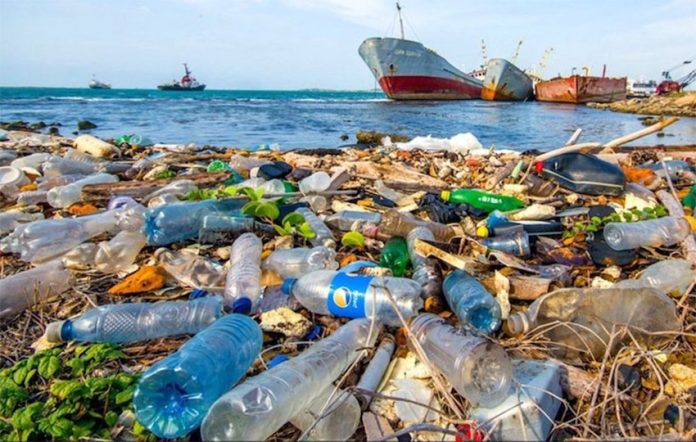A few years ago, a friend and I took our kids to a cafe.
When the waiter brought them straws for their drinks, my friend’s son turned to the waiter and said, “No, thank you, I love the animals in the oceans.”
It wasn’t my proudest moment, sitting there struggling not to roll my eyes at a four-year-old.
The idea that he’d been made to think refusing a straw meant that he was rescuing an untold number of animals struck me as preposterous and unhelpful.
What he was doing was just one more way (on a list that’s a million items long) that we heavily stroke our egos and teach our children to do the same. We tell ourselves that saying no to something once in a while is doing enough to save the planet.
When it comes to the environment, we have such a habit of overestimating the effects of our efforts and drastically underestimating the effects of the harm we cause.
I am just over it.
To be clear, I’m not saying that every little bit doesn’t count. If we all stop using straws, that’s a lot less plastic. But it’s going to take a lot more than refusing straws to save the entirety of marine life.
Straws by themselves are easy to give up, and there are replacements now on the market for those who really want them: bamboo ones, reusable metal ones. It’s easy to be environmentally conscious when adjusting one’s behavior doesn’t represent a huge modification of one’s habits.
But, as food vendors in the capital can tell you after the single-use plastics ban in Mexico City, people don’t just stop expecting what they’ve always expected overnight. And just because we decide to suddenly not allow something doesn’t mean that the need for those items will go away. This was well-illustrated by the the rude awakening many women had upon suddenly not being able to buy tampons in the capital — to help the environment.
In this moment, I looked over at the boy’s mother, who was beaming with pride at her son’s environmental conscientiousness.
Well, maybe he’ll eventually make the connection with all the other plastics we use, I thought.
Refusing certain specific plastics isn’t nothing; it’s merely something that must go hand in hand with a solution for all the plastics and trash we’ve got lying around already.
Because let’s face it: most of us don’t think that much about our trash once it’s carted away; I certainly don’t. Where does our trash end up? Who knows? And who cares?
Thankfully, some people do know and care.
There are a great number of ways of dealing with trash collection and recycling in Mexico. The only constant is that it’s not uniform: each municipality is individually responsible for its own trash collection procedure and policy.
Another somewhat depressing constant is that most trash sorters and recyclers work on their own to receive income from what they collect and are not municipal employees that receive salaries or benefits; they often live right inside the landfills.
And according to data collected by INEGI in 2019, 8% of municipalities in Mexico have no trash collection service at all.
So, while some places like Mexico City have quite well-developed trash infrastructure and procedures, there’s no national trash policy, meaning that each community is left to essentially figure it out for themselves, reacting to rather than planning for trash as they grow.
This week, Mexico News Daily reported on the “plastics problem” in Puerto Escondido, a popular growing hub for both tourists and permanent expats. One of the tell-tale signs that the place is popular is the amount of waste that it produces, which has grown in tandem with its population.
Humans are messy. Wherever we go, we leave behind debris, and that is just a reality. We might clean our own particular areas, but the things we throw away don’t simply disappear; they go somewhere.
As the short film in the plastics problem article showed, that “somewhere” is, in some case, into the bellies of fish. It also goes on the side of a particular mountain there. And, of course, much of it goes into the ocean.
We need to take a two-pronged approach to this problem and work on reducing its use in the first place. The solution doesn’t just lie at the consumer’s feet.
Plastic starts somewhere as well, and I’m just so tired of this cycle of allowing them to be produced and put on the market for widespread use, chiding individuals for using them, taking them away when they don’t stop voluntarily, and then not having a reasonable replacement for things that have been woven into our economic infrastructure for decades.
Thankfully, there are people all across the country taking action. Along with those mentioned in Puerto Escondido, people have found many creative ways to recycle. There are the people who’ve learned to turn cigarette butts into productive fungus, and there are “green libraries” made out of recycled bottles.
There was also the plastics fishing tournament — something I think should be a weekly event; in fact, all of these efforts would be a thousand times more effective if they were widespread, institutionalized practices.
Like the dishes, managing trash is never done; there’s always more of it to deal with, and way too much of it will outlive us all, some by millions of years.
Maybe my little friend who refuses straws is onto something after all.
Sarah DeVries is a writer and translator based in Xalapa, Veracruz. She can be reached through her website, sdevrieswritingandtranslating.com and her Patreon page.
